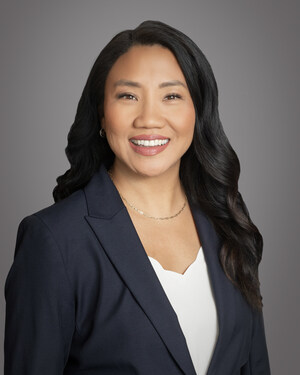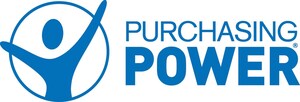Online Education Services Added to Employee Benefits Packages Pay Off for Employees and Employers
Purchasing Power White Paper Examines How Employers Can Offer Affordable Online Education as a Voluntary Benefit
ATLANTA, March 25, 2013 /PRNewswire/ -- As many American workers look for less-costly alternatives to traditional education, online education, considered a game-changing trend for 2013,i is becoming a viable option. When offered by their employers through an employee purchase program as a voluntary benefit, online education gives employees an affordable way to attain first-year and catch-up college degree programs for themselves, and a variety of tutoring and SAT/ACT preparation courses for their family members.
According to a nationwide survey conducted online by Harris Interactive® on behalf of Purchasing Power from January 23-25, 2013, among 2,160 U.S. adults ages 18 and older, of whom 1,151 are employed full-time and/or whose spouse is employed full-time, 53 percent of these workers/spouses of workers reported they would be at least somewhat likely to pursue educational services for themselves or their family if those educational services were available through an employee purchase program.
A new white paper released today by Purchasing Power, "Knowledge is Power: Using Voluntary Benefits that Empower Employees with Education," uses proprietary and industry research to explore educational services as a new, much-needed voluntary benefit. The paper examines the financial crisis that traditional education is undergoing, the resulting surge in popularity of online education programs, the ability to access educational services through voluntary benefits such as employee purchase programs, and the advantages of doing so for both employees and employers.
"Empowering employees with education benefits can be a valuable addition to the benefits package," says Richard Carrano, President and CEO, Purchasing Power. "Many employers currently provide some form of tuition assistance, but now they can offer a variety of learning options for employees and their families as a voluntary benefit, without further burdening their benefits budget. Non-traditional voluntary benefits like these are becoming increasingly popular with employees because they address employees' real-world lifestyles and financial needs," he adds.
A survey conducted by Harris Interactive® in 2012 and 2013 found adults who are employed full-time and/or whose spouse is employed full-time indicate that educational services are important to them and that they would consider using a voluntary benefit – an employee purchase program – to access those educational services.ii
The cost of obtaining a college education is escalating and because the out-of-pocket burden of such an expense is too much for most individuals to afford, alternative sources of capital are often sought to fund educational endeavors. Ninety-four percent of students use student loans to earn a bachelor's degree. The total value of student loan debt has passed $1 trillion.iii This is higher than the $692 billion of combined credit card and auto loan debt.
"Offered as part of an employee purchase program, educational services, such as Purchasing Power's Learning Solutions, are a more affordable alternative for employees to fund education for themselves and their family members," Carrano explains. "Employees pay for these services through convenient payroll deductions over 12 months, providing a responsible way to budget and the opportunity to graduate debt-free. Thus, employees can invest in their future and advance their career," he concludes.
The complete white paper "Knowledge is Power: Using Voluntary Benefits that Empower Employees with Education" is available in the Employer Resources section on the Purchasing Power website.
About Purchasing Power, LLC
Headquartered in Atlanta, GA, Purchasing Power is one of the fastest-growing specialty e-retailers in the market offering a leading voluntary benefit program. Purchasing Power differentiates itself from traditional e-commerce retailers through its unique payment plan value proposition, strategic benefit broker partnerships, internal marketing expertise and superior customer service. Purchasing Power is a Rockbridge Growth Equity, LLC Company. Over 6 million people have access to Purchasing Power, and since it was founded in 2001, the company has fulfilled over $950 million in customer orders from employees and members of leading companies and organizations across the U.S., including Fortune 500 companies and government agencies. For more information, visit www.PurchasingPower.com
i Inc., "Seven Things You Need to Know about 2013," Adam Bluestein.
ii Online Harris Interactive survey on behalf of Purchasing Power, Jan. 25-27, 2012, among 2,099 U.S. adults, of whom 700 are employed full-time and/or whose spouse is employed full-time and Jan. 23-25, 2013, among 2,160 U.S adults, of whom 1,151 are employed full-time and/or whose spouse is employed full-time.
iii Reuters.com, "Counterparties: America's Trillion-Dollar Student Debt Burden," Ben Walsh, May 14, 2012.
Harris Interactive Survey – Full Methodology
This survey was conducted online within the United States between January 23rd and 25th, 2013 among 2,160 adults (aged 18 and over), of whom 1,151 are employed full-time and/or whose spouse is employed full-time by Harris Interactive on behalf of Purchasing Power via its Quick Query omnibus product. Figures for age, sex, race/ethnicity, education, region and household income were weighted where necessary to bring them into line with their actual proportions in the population. Propensity score weighting was used to adjust for respondents' propensity to be online.
All sample surveys and polls, whether or not they use probability sampling, are subject to multiple sources of error which are most often not possible to quantify or estimate, including sampling error, coverage error, error associated with non-response, error associated with question wording and response options, and post-survey weighting and adjustments. Therefore, Harris Interactive avoids the words "margin of error" as they are misleading. All that can be calculated are different possible sampling errors with different probabilities for pure, un-weighted, random samples with 100% response rates. These are only theoretical because no published polls come close to this ideal.
Media Contact:
Diana Mulhall
Purchasing Power
404-609-5030
[email protected]
SOURCE Purchasing Power, LLC
WANT YOUR COMPANY'S NEWS FEATURED ON PRNEWSWIRE.COM?
Newsrooms &
Influencers
Digital Media
Outlets
Journalists
Opted In





Share this article